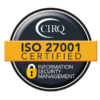My name is Kristopher and I’m an RPV Patient Panelist who’s overcoming Hemophilia.
I really like taking the surveys because I feel like I’m making an impact. I’m able to contribute to something that I normally wouldn’t be able to in my day-to-day life or career. The questions that are asked are pretty easy. I mean they pertain to your everyday life, but if you sit back and look at it you can really think about how do they, how can they shape the future and that’s what really makes them interesting.
At points, Rare Patient Voice is my support group. Knowing that there’s a company out there that’s looking out for not only me but others that have hemophilia is enough support for me and knowing that the future is bright for my community. Based on the questions that they ask they clearly know what hemophilia is and how to treat it and what may be the upcoming therapies to help out as well.
So if you’re asking yourself “Is it worth your time?” the answer is “Absolutely yes”. The time of the surveys vary. Ten, twenty, sixty minutes. But just to think that 10 minutes out of your day can impact your entire future, your entire life. Just that 10 minutes could impact one small thing that’s making dealing with your condition that much easier. Plus of course, there’s financial reimbursement. It’s not going to be something you can make a living off of but it’ll certainly buy your lunch for the day and then some. And all depending on what how much they’re reimbursing you for. So, I mean, that varies as well from ten dollars to one hundred and fifty dollars plus.
The real point is that you’re helping out others and, you’re helping out yourself for your future. Certainly there are way more conditions that are out there that are worse off and I am with having hemophilia. Living with Hemophilia isn’t the worst thing in the world, but it does restrict your quality of life and some of the activities that you do due to internal bleeds and the joint damage that’s associated with that. However, due to companies who value patient’s input like Rare Patient Voice and relay that information to doctors and research and pharmaceutical companies, there’s light at the end of the tunnel.







